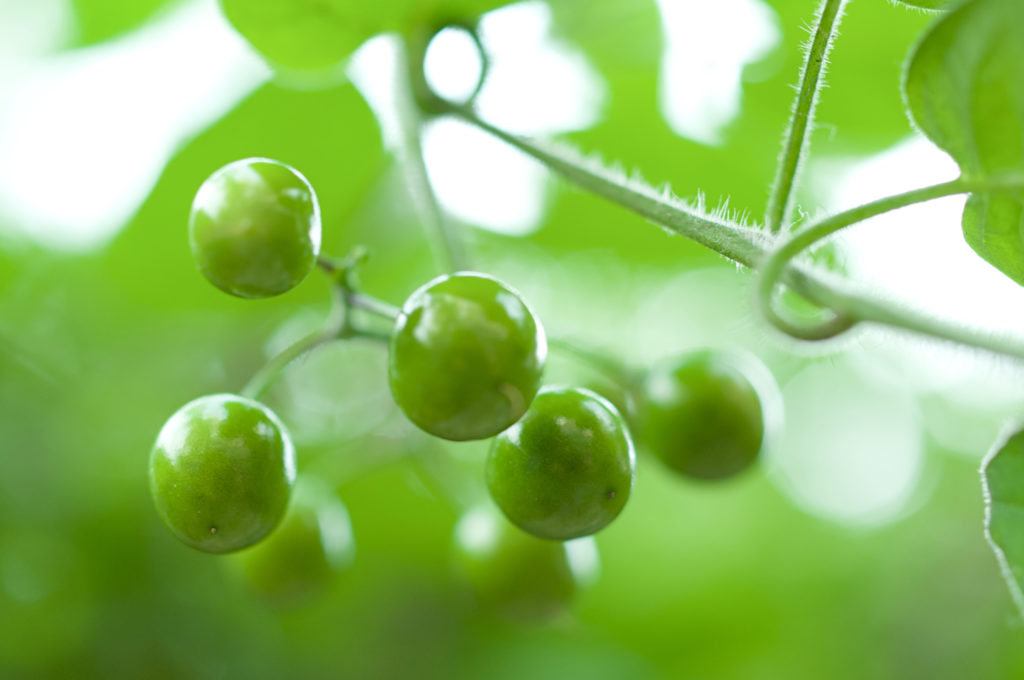
Fish, Motion Sickness, and the Story of Cocculus Indicus
Last updated on September 12th, 2022 at 01:37 pm

Deep in the tropical groves of Southeast Asia grows a wild vine-y shrub called Anamirta cocculus. It has large, heart-shaped leaves and twines itself onto other forest plants for support. And while it may look harmless enough, the plant bears small round berries containing very potent seeds, which have been used in food and medicine for centuries.
The fruit of Anamirta cocculus goes by many names, some offering a clue to their usage. In English, they’re commonly known as “fish berry” referring to their use as a method of fishing. The berry’s seeds contain a powerful alkaloid called picrotoxin. In Southeast Asia, fishermen would sprinkle them into the water to stun fish, making them easier to capture. Other names of the berry include Levant nut, poison berry, and Indian cockle.
Because of this inebriating quality, fish berry found its way into beer. Unscrupulous brewers relied on the fruit to impart bitter flavoring and to make their beers more intoxicating. Beer purity laws across Europe eventually outlawed this practice.
Medicinally, picrotoxin extracted from the berries has been used for night sweats, epilepsy and as a stimulant, but this use is rare nowadays. Today, the dried and powdered seeds are mainly used in homeopathy as a motion sickness medicine. In homeopathic form, it’s prepared and highly diluted in a way that removes the seed’s toxic properties. The Homeopathic Pharmacopoeia of the United States (HPUS) has determined homeopathic dilutions of Cocculus indicus 6X and above are safe to be sold as over-the-counter medicines.
Homeopathic Cocculus indicus relieves nausea from motion sickness or other causes that is improved by lying down.* It’s especially useful when symptoms like nausea, tiredness, dizziness, and weakness are triggered by jet lag or working night shifts. To use, dissolve five pellets of Cocculus indicus 6C under the tongue every hour as needed. For planned trips, take five pellets three times a day on the day before travel, and then five more pellets just before leaving.
Cocculus indicus is available as a “blue tube” single medicine. You’ll also find it as one of the active ingredients in MotionCalm and NauseaCalm. For more on the homeopathic uses of Boiron Cocculus indicus, click here to watch this video featuring Dr. Gary Kracoff, NMD, RPh.
*Claims based on traditional homeopathic practice, not accepted medical evidence. Not FDA evaluated.






2 thoughts on “Fish, Motion Sickness, and the Story of Cocculus Indicus”
I frequently get dizzy spells and nausea from sinus problem and eye strain and this product in 30 dose works for me along with Causticum 30. I’m going to try the 6 dose.
Thanks for your message Jay, you might also want to check out our new MotionCalm tablets. It contains Cocculus indicus and several other medicines to address nausea and dizziness.
I’ve had vertigo, ongoing for three days now. Would this motion sickness tablet work for that?
Hi Donna, Cocculus indicus (and our MotionCalm medicine that includes this ingredient) is indicated for dizziness, nausea, and vomiting. However, we recommend checking with your doctor if you experience symptoms for more 2 days as vertigo could be caused by an underlying condition requiring attention.